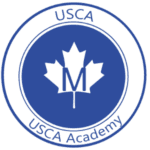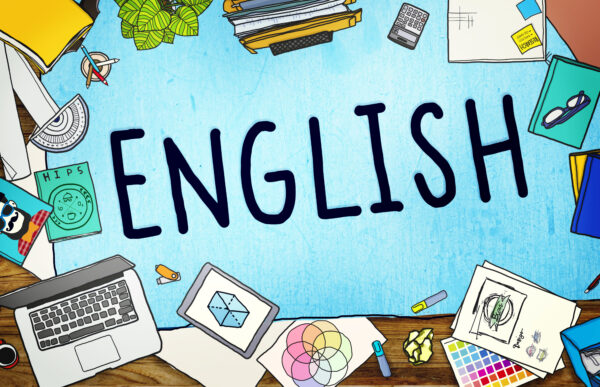Course Description
This course emphasizes the development of literacy, communication, and critical and creative thinking skills necessary for success in academic and daily life. Students will analyze challenging literary texts from various periods, countries, and cultures, as well as a range of informational and graphic texts, and create oral, written, and media texts in a variety of forms. An important focus will be on using language with precision and clarity and incorporating stylistic devices appropriately and effectively. The course is intended to prepare students for the compulsory Grade 12 university or college preparation course. Contact us to know more English Grade 11.
Outline of Course Content
Unit
Titles and Descriptions
Time and Sequence
Unit 1
Short Stories
A collection of short stories will be read, analyzed and discussed in this unit. The characteristics and features of short stories will be part of the unit. A collection of short stories by O. Henry will form the main corpus of readings for this unit.
30 hours
Unit 2
Poetry
The organization and structure of poetry will be mentioned in the unit. A number of poems will be read aloud in class. And these poems will be analyzed and discussed in groups.
30 hours
Unit 3
Macbeth
The Shakespearean play Macbeth will be studied in this third unit. The class will read through each act and scene of the play, aloud. There will be numerous class discussion on the content of the play.
24 hours
Unit 4
Novel Study: Frankenstein
This final unit will be a novel study of Mary Shelley’s Frankenstein. Various aspects of the novel will be studied including the notions of Victor Frankenstein, playing the role of a god.
23 hours
Unit 5
Final Evaluation
3 hours
Total
110 hours
It is important that students have opportunities to learn in a variety of ways: individually and cooperatively;
independently and with teacher direction; through hands-on activities; and
through the study of examples followed by practice;
all of which will be used throughout this course.
The expectations in this science course call for an active, experimental approach to learning, and require all students to participate regularly in laboratory activities. Laboratory activities can reinforce the learning of scientific concepts and promote the development of the skills of scientific investigation and communication. Where opportunity allows, students might be required, as part of their laboratory activities, to design and conduct research on a real scientific problem for which the results are unknown. Connections between science and technology and between science and the world beyond the school will be integrated into students’ learning of scientific concepts and skills. Where possible, concepts will be introduced in the context of real-world problems and issues. Students will also be provided with a variety of opportunities to broaden their understanding of scientific investigation. Many activities used in all the units are developing skills necessary for success in the final examination.
English Grade 11: Assessment is a systematic process of collecting information or evidence about student learning. Evaluation is the judgment we make about the assessments of student learning based on established criteria. The purpose of assessment is to improve student learning. This means that judgments of student performance must be criterion-referenced so that feedback can be given that includes clearly expressed next steps for improvement. Tools of varying complexity are used by the teacher to facilitate this. For the more complex evaluations, the criteria are incorporated into a rubric where levels of performance for each criterion are stated in language that can be understood by students.
| anecdotal | tests |
|---|---|
| quizzes | culminating activities including: |
| Labs/performance tasks | − labs/performance tasks |
| presentations | − research reports |
| research | − presentations |
| labs | − portfolios |
Assessment is embedded within the instructional process throughout each unit rather than being an isolated event at the end. Often, the learning and assessment tasks are the same, with formative assessment provided throughout the unit. In every case, the desired demonstration of learning is articulated clearly and the learning activity is planned to make that demonstration possible. This process of beginning with the end in mind helps to keep focus on the expectations of the course as stated in the course guideline. The evaluations are expressed as a percentage based upon the levels of achievement.
English Grade 11: The evaluation of this course is based on the four Ministry of Education achievement categories of knowledge and understanding (25%), thinking (25%), communication (25%), and application (25%). . The evaluation for this course is based on the student’s achievement of curriculum expectations and the demonstrated skills required for effective learning.
The percentage grade represents the quality of the student’s overall achievement of the expectations for the course and reflects the corresponding level of achievement as described in the achievement chart for the discipline.
A credit is granted and recorded for this course if the student’s grade is 50% or higher. The final grade for this course will be determined as follows:
- 70% of the grade will be based upon evaluations conducted throughout the course. This portion of the grade will reflect the student’s most consistent level of achievement throughout the course, although special consideration will be given to more recent evidence of
- 30% of the grade will be based on a final exam administered at the end of the course. The exam will contain a summary of information from the course and will consist of well-formulated multiple choice questions. These will be evaluated using a checklist.
Textbook
Nelson Biology 11 University Preparation © 2011


